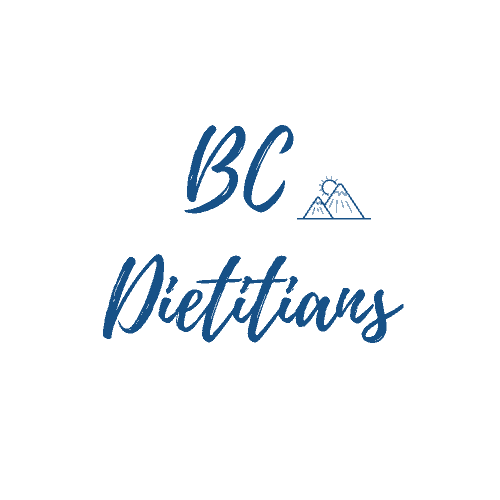We all know the feeling of regret that comes after an episode of overeating. Perhaps you find yourself eating one or two too many chips from a bag, and before you know it, the whole bag is gone! Or maybe your nighttime snacks snowball into mindlessly snacking on whatever’s in front of you until hours later, when there’s nothing left on snack shelves.
Binge eating can become an overwhelming cycle for busy adults trying to juggle work and personal lives – so what do we do when these episodes occur? As a Vancouver Dietitian with a special interest in PCOS and a healthy relationship with food, I’m here to provide advice on what to do after a binge (without shaming!) – so keep reading for renewed perspective and strategies for tackling what to do after binge eating head-on!
Self-Compassion: Growing Stronger With Kindness
We’ve all been there – that moment of panic and regret after a binge. You might be feeling guilty, ashamed, or angry with yourself. However, self-criticism and beating yourself up will only make things worse. This will help you avoid going into a shame spiral and binging more or skipping meals afterward. It’s easy to get stuck in a cycle of shame – restrict – binge – repeat, but the first step to breaking that cycle is practicing self-compassion.
Just like you would support a friend or a small child through their pain and mistakes, it’s important to speak to yourself with kindness and understanding. This can help you avoid the urge to binge more or skip meals out of guilt. To get started, consider trying free self-compassion exercises recommended by Dr. Kristin Neff, an expert on the subject. Remember, you are not alone in this experience, and treating yourself with compassion is an important part of the healing process.
Curiosity: Understanding Your Overeating Triggers
After a binge eating episode, it’s important to take a step back and assess what led you to overeat. One crucial step in this process is curiosity – asking yourself what factors or triggers may have played a role.
- Were you feeling stressed or anxious?
- Did you eat too quickly or skip a meal earlier in the day?
- Did you get enough sleep?
By becoming more aware of your triggers, you can start to create systems that prevent future episodes of overeating. You can also read our blogs on the hidden causes of emotional eating (part 1 and part 2) if you need more help to identify your triggers!
Binge-eating can have various triggers, including emotional stress, boredom, and deprivation, among others. Take some time to reflect on what led you to overeat and be compassionate with yourself. Remember, awareness precedes change, and by identifying your triggers, you’re one step closer to breaking the binge-eating cycle.
Mindfulness: Slow Down to Make Intentional Eating Choices
It can be tough to know how to bounce back from a binge, especially if you feel uncomfortable, bloated, or sick afterwards. But what we often don’t consider is how we felt during the binge eating. It’s easy to fall into the trap of mindless eating, especially when there’s delicious food in front of us or we are experiencing strong emotions. However, practicing mindfulness can be incredibly helpful in helping you make intentional choices that are helpful for your health or goals. Take a moment to reflect on the emotions and sensations you felt during your binge.
- Notice how the food made you feel – does it bring you joy or discomfort?
- Did you feel any emotions or sensations in your body?
- Did you enjoy the food, or were you eating mindlessly?
- How do you want to feel after finishing a meal or snack?
- Is this pattern or habit helping you live the life you want to live?
Pay attention to your emotions and sensations. This awareness can help you detect hunger and fullness cues, ultimately leading to a healthier relationship with food. With practice, mindfulness can become an effective tool for avoiding future binges and maintaining balance in your diet. You may even be able to stop during a binge or prevent them in the future!
Gentle Movement, Not Punishment
After a binge, it’s important to be kind to yourself, and not to punish your body for what you just ate. One effective way to help relieve symptoms of bloating or feeling too full is to engage in gentle movement. While physical activity can certainly help you feel better after a binge, it’s essential to approach it with care and compassion.
You don’t need to run a marathon or spend hours at the gym to make up for the meal you just had. Instead, focus on gentle activities such as a walk, yoga, or stretching. These types of movement will not only help you connect with your body but also release any bloating or discomfort you might be feeling. Remember, the key word here is gentle. As you work on finding ways to move your body post-binge, do it with compassion for yourself and your body.
Honour Your Hunger Cues
After a binge, it can be tempting to skip meals or undereat to compensate for the overeating. However, this can set you up for another binge in the near future. Honoring your hunger cues is essential to breaking this cycle.
Your body knows what it needs, and ignoring its signals can lead to future binges. Listen to your body and give it what it needs, whether that’s a heartier meal or something lighter. Remember that you deserve to eat every day, regardless of what you ate yesterday. By tuning in to your body, you can find balance and move past the binge-restrict cycle.
How To Bounce Back After Binge Eating
Bouncing back after a binge can feel daunting, but with these tips, you can not only get back on track but also learn valuable lessons for maintaining a healthy relationship with food.
Binge-eating can be hard to navigate, but it can also offer valuable lessons if you approach it with curiosity and compassion. Instead of beating yourself up after a binge, try practicing self-kindness, curiosity, mindfulness, gentle movement, and honoring your hunger cues. These five things will help you move forward, grow, and prevent future binges. Remember, progress, not perfection, is the goal. You got this!
Virtual Binge Eating and Binge Eating Disorder Support
If you’re looking for tailored advice and support, don’t hesitate to book a free consultation with Caroline, your Virtual Dietitian specializing in PCOS and food relationships. Remember, you are not alone in your journey, and professional guidance can make a significant difference in your progress.









Add a comment